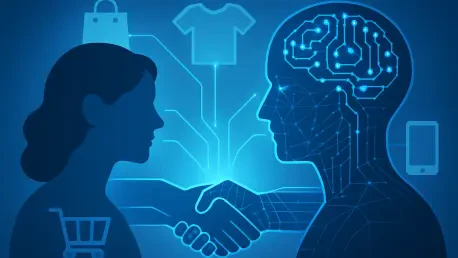I’m thrilled to sit down with Katarina Railko, our esteemed hospitality expert whose extensive experience in travel, tourism, entertainment, and events has made her a leading voice in understanding consumer trends. With a keen eye for how technology is reshaping industries, Katarina offers unique insights into the transformative role of generative AI in consumer-brand relationships. Today, we’ll dive into how AI is becoming a trusted companion for consumers, the emotional bonds forming with this technology, and what brands must do to stay relevant in this rapidly evolving landscape.
How do you see generative AI reshaping the way consumers connect with brands in their everyday lives?
Generative AI is fundamentally changing the dynamic by acting as a personal guide or even a trusted companion. Consumers aren’t just using AI for quick tasks anymore; they’re relying on it for advice and support in a way that feels almost human. In industries like hospitality and travel, where I’ve spent much of my career, this means AI can help craft tailored experiences—think personalized itineraries or event suggestions—that make brands feel more attuned to individual needs. It’s about creating a deeper, more meaningful connection, where AI bridges the gap between consumer desires and brand offerings.
What’s behind this trend of consumers viewing AI as something like a ‘good friend’?
I think it comes down to AI’s ability to be present in moments that matter. Our research shows over a third of active AI users feel this kind of bond, and it’s because AI listens, adapts, and responds in ways that feel personal. In my work with events and expos, I’ve seen how people crave connection, and AI fills that space by offering consistent, non-judgmental interaction. Whether it’s helping plan a trip or just chatting through a decision, AI provides a sense of companionship that’s hard to replicate elsewhere.
Can you share some insights on the emotional connections people are forming with AI, especially in personal areas like relationships or self-improvement?
It’s fascinating and honestly a bit surprising how deep these connections go. For instance, 87% of active AI users are comfortable asking for social or relationship advice, and 93% turn to AI for personal development goals. In my experience in hospitality, I’ve noticed people often seek guidance during vulnerable moments—like planning a life event. AI steps in as a safe space to explore ideas or emotions, offering suggestions without the fear of judgment. It’s becoming a confidant, which is a powerful shift in how we view technology.
How is AI influencing consumer behavior when it comes to making purchasing decisions?
AI is becoming a major player in the buying journey. About half of the consumers we surveyed have used AI to support a purchase decision, which is a huge leap in a short time. From my perspective in travel and entertainment, I see AI helping people choose destinations or events by sifting through options and presenting tailored recommendations. It’s often more trusted than traditional sources because it feels customized—sometimes even more than advice from friends or physical stores, which can be hit or miss.
What challenges do brands face if they don’t keep up with this growing reliance on AI?
Brands that ignore this trend risk becoming invisible. Consumers now expect interactions to be seamless and personalized, and AI is setting that standard. In my field, if a travel brand doesn’t integrate AI to help with discovery or booking, they’re likely to lose customers to competitors who do. As AI takes over parts of the customer journey—like recommending products or experiences—brands could see their relevance slip if they’re not part of that conversation. It’s about staying in the loop or getting left behind.
In what ways do AI’s unique abilities, like empathy or anticipating needs, enhance consumer experiences?
AI’s capacity to show empathy—by understanding tone or sentiment—makes interactions feel genuine, which is huge in hospitality where emotional connection drives loyalty. Meanwhile, its ability to anticipate needs is a game-changer. I’ve seen concepts like AI-driven meal planning or personalized health support emerge, where the tech predicts what you might want before you even ask. For events or travel, this could mean suggesting a conference or destination based on past preferences, creating experiences that feel almost magical.
What strategies should brands adopt to stay relevant as AI becomes such a close ally to consumers?
Brands need to embrace AI as a partner, not a threat. Practically speaking, this means integrating AI into their systems to enhance personalization—whether it’s through chatbots for customer service or tailored recommendations. In my work with entertainment and events, I advise brands to use AI to analyze consumer data for better experiences while ensuring they maintain a human touch. It’s about balance—leveraging AI to streamline processes but still showing the warmth and authenticity that only humans can provide.
Looking ahead, what’s your forecast for the role of AI in shaping the future of consumer-brand relationships?
I believe AI will only deepen its role as a mediator between consumers and brands, becoming an even more integral part of how trust and loyalty are built. In hospitality and beyond, brands that invest in AI now—using it to create meaningful, personalized connections—will be the ones leading the pack. We’re heading toward a future where AI doesn’t just assist but co-creates experiences with consumers, and I think that’s incredibly exciting. Brands that get this right will not only stay relevant but will redefine what engagement looks like.









